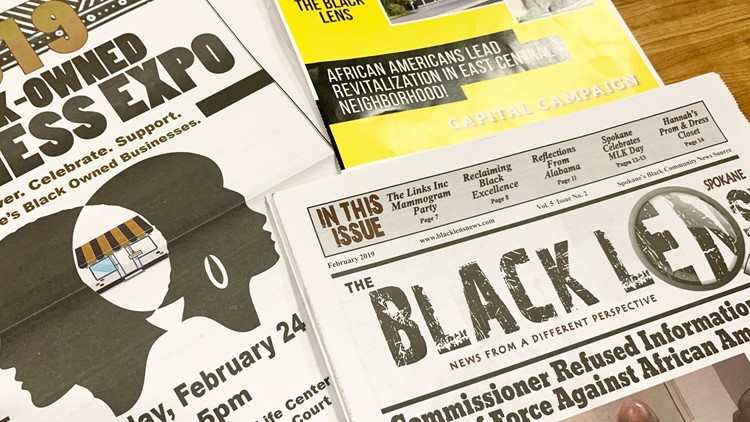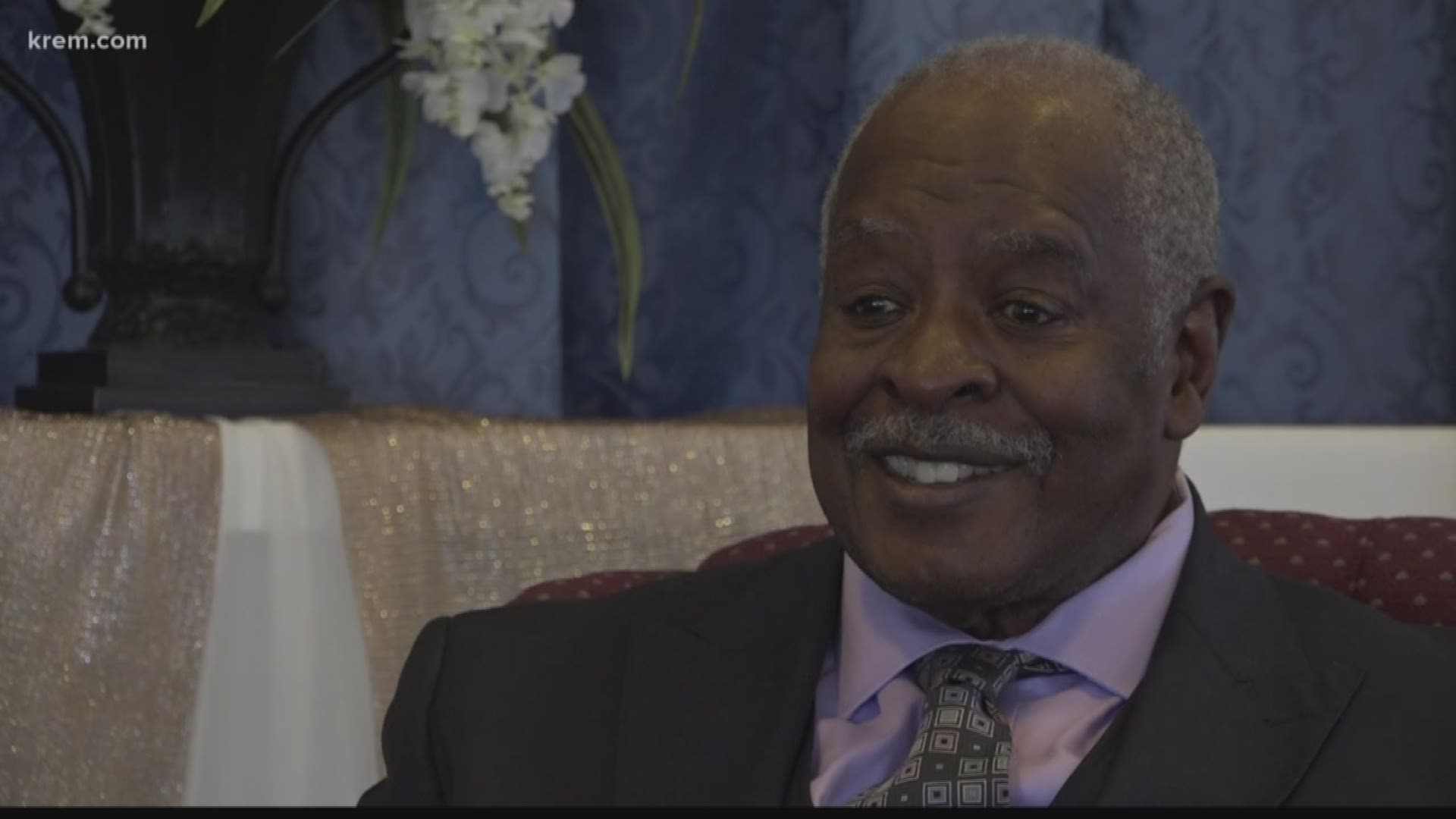SPOKANE, Wash. — Sandy Williams runs a newspaper out of the basement of her Spokane home and serves as her own news staff. She even taught herself the necessary layout and design skills.
Williams took a leap of faith in 2015 and quit her job to fully devote herself to what began as a part-time hobby. That leap as editor and chief of newspaper The Black Lens would be one that a small minority would come to appreciate.
“When I started out, my idea was that I was just going to do happy stories about people in Spokane because a lot of the news that focuses on the African-American community is negative,” Williams said. “That lasted about five minutes because I ended up needing to cover stories that weren’t getting covered in other places.”
The first story printed on the front page of Black Lens focused on a Department of Justice report reviewing excessive force used by the Spokane Police Department. The report surfaced eight years after the death of Otto Zehm, a mentally disabled janitor who was beaten at the hands of a Spokane police officer.
Zehm was beaten and targeted with a stun gun by Thompson in a convenience store. He was then hog-tied and sat on by other officers until he passed out. He died two days later without regaining consciousness.
Spokane police officer Karl F. Thompson, 65, was convicted of violating Zehm’s civil rights by using excessive force and then lying to investigators in the case.
There was a particular area of the DOJ "use of force" report that surfaced after this incident that Williams could not ignore.
In a section on race, the report stated that there were no racial disparities in SPD’s use of excessive force as a collective department.
“So I read the report, that wasn’t exactly accurate because the population – the African-American population is two percent, racial disparities were 10 percent, so it’s disparate, and I thought, ‘Well if I don’t say that, then it won’t get out there,’” Williams said.
“In that moment the paper took a turn from sort of being, that sort of casual kind of, ‘Let me tell a happy story,’ to, ‘I think there’s a role for me to tell stories that aren’t getting told,’” she added.
The Black Lens celebrates four years in Spokane
Four years after that first article and first issue of the newspaper was published, Williams has gained a community of readers who celebrated the paper’s anniversary at the end of January.
“When there's a small population it's hard to connect with each other, it's hard to find each other, it's hard to know what's going on. Communities feel comfortable and feel empowered when they have an ability to communicate and connect with each other,” Williams said.
One reader who attended the anniversary party at Fresh Soul said they enjoy reading Black Lens because it gives them a different perspective on someone else’s story, while another said it gives the black community a voice in Spokane.
Each month, Williams sets out to deliver her papers – and her voice – to the community by hand.
“When I printed the first issue, I sat in the car, I had all the papers on my backseat and I was like, ‘Okay, what do I do now?’” Williams said.
She said her daughter gave her a simple piece of advice: Hand them out.
Bob Hemphill, owner of Chkn-N-Mo, said he had never seen a black-owned newspaper like Williams’ during his forty years in Spokane.
“It gives a lot of information to the black citizens of the country and the black residents of Spokane,” he said.
Williams says paper fosters community, connection
Despite the positive response, Williams said there has been some pushback in the community.
“There have been voices that have said it’s been exclusionary, divisive, because I focus on the black community, that somehow that’s read by some people as trying to be separatist,” she said. “I don’t really understand that, but that’s a voice that’s out there. It doesn’t come up very often but it does come up.”
This pushback, along with other factors, makes producing the paper each month a difficult feat, Williams said.
“How do I do it? I don’t know. Every month I’m ready to quit,” she said.
But Williams remembers her readers and contributors.
“To be an African-American based newspaper in a community that has two percent African-American people…I’m sort of a dreamer that way,” she said. “Communities feel comfortable and feel empowered when they have an ability to communicate and connect with each other.”
“That’s part of the role I’m playing, is giving folks an opportunity, in a safe way, to learn, experience and just see an alternate perspective that they probably wouldn’t know about or see if the paper didn’t exist,” Williams said.




